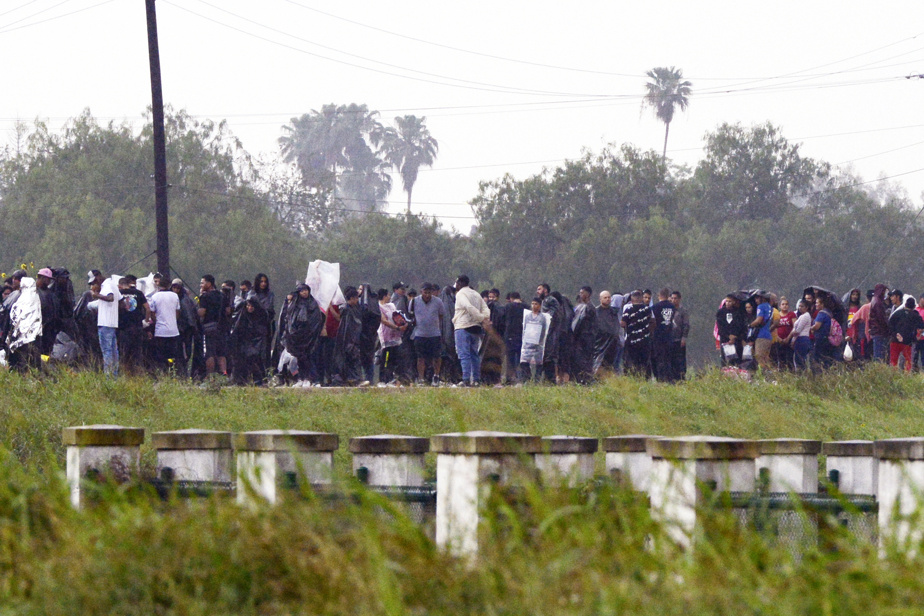(Brownsville) Shelters in a Texas town struggled to find space on Saturday for migrants who authorities say suddenly began crossing in their thousands from Mexico, straining a stretch of the border which is generally equipped to handle large groups of people fleeing poverty and violence.
The pace of arrivals in Brownsville appeared to catch the southernmost Texas town off guard, straining social services and placing an overnight shelter in an unusual position of turning people away. Officials say more than 15,000 migrants, mostly from Venezuela, have crossed the river irregularly near Brownsville since last week.
That’s a sharp increase from the 1,700 migrants Border Patrol agents encountered in the first two weeks of April, U.S. Customs and Border Protection officials say.
“It’s quite concerning because the logistical challenge we’re facing is huge,” said Gloria Chavez, Rio Grande Valley sector chief for the U.S. Border Patrol.
The reason for the increase was not immediately clear. Chavez said migrants have been frustrated by relying on a malfunctioning government app that can normally allow them to claim asylum at a port of entry. Some migrants who crossed over this week cited other motivating factors, including cartel threats that immediately preceded the sudden surge.
The rise comes as the Biden administration plans to end the asylum restrictions imposed during the pandemic. US authorities said daily illegal crossings from Mexico could climb to 13,000 from around 5,200 in March.
Brownsville is across the Rio Grande River from Matamoros, Mexico, where a sprawling encampment of makeshift tents housed about 2,000 people waiting to enter the United States.
Last week, some tents were set on fire and destroyed. Some migrants said cartel-backed gangs were responsible, but a government official suggested the fires could have been started by a group of migrants frustrated by their long wait.
“It was desperation, the cartel,” said Roxana Aguirre, 24, a Venezuelan migrant who sat outside a bus station in Brownsville on Friday afternoon. You couldn’t be on the street without looking over your shoulder. »
In downtown Brownsville, families from Venezuela, Cuba, Haiti and China walked aimlessly, carrying their belongings and talking on their cellphones.
Brownsville officials issued a disaster declaration this week, like other Texas border towns that have similarly faced sudden influxes of migrants, including El Paso last year.
“We’ve never seen these numbers before,” Brownsville Police Department spokesman Martin Sandoval said.
The reshuffling of resources at the border — in one of the busiest areas with strong Border Patrol personnel — comes as the U.S. Department of Homeland Security prepares to end the use of a security measure. public health known as Title 42, which allowed them to reject asylum claims.
The administration has deported migrants 2.7 million times under this rule in effect since March 2020 that denies the right to seek asylum under U.S. and international law on the grounds of preventing the spread of COVID-19. 19. Title 42 is scheduled to end on May 11 when the United States lifts its final COVID-19 restrictions.

